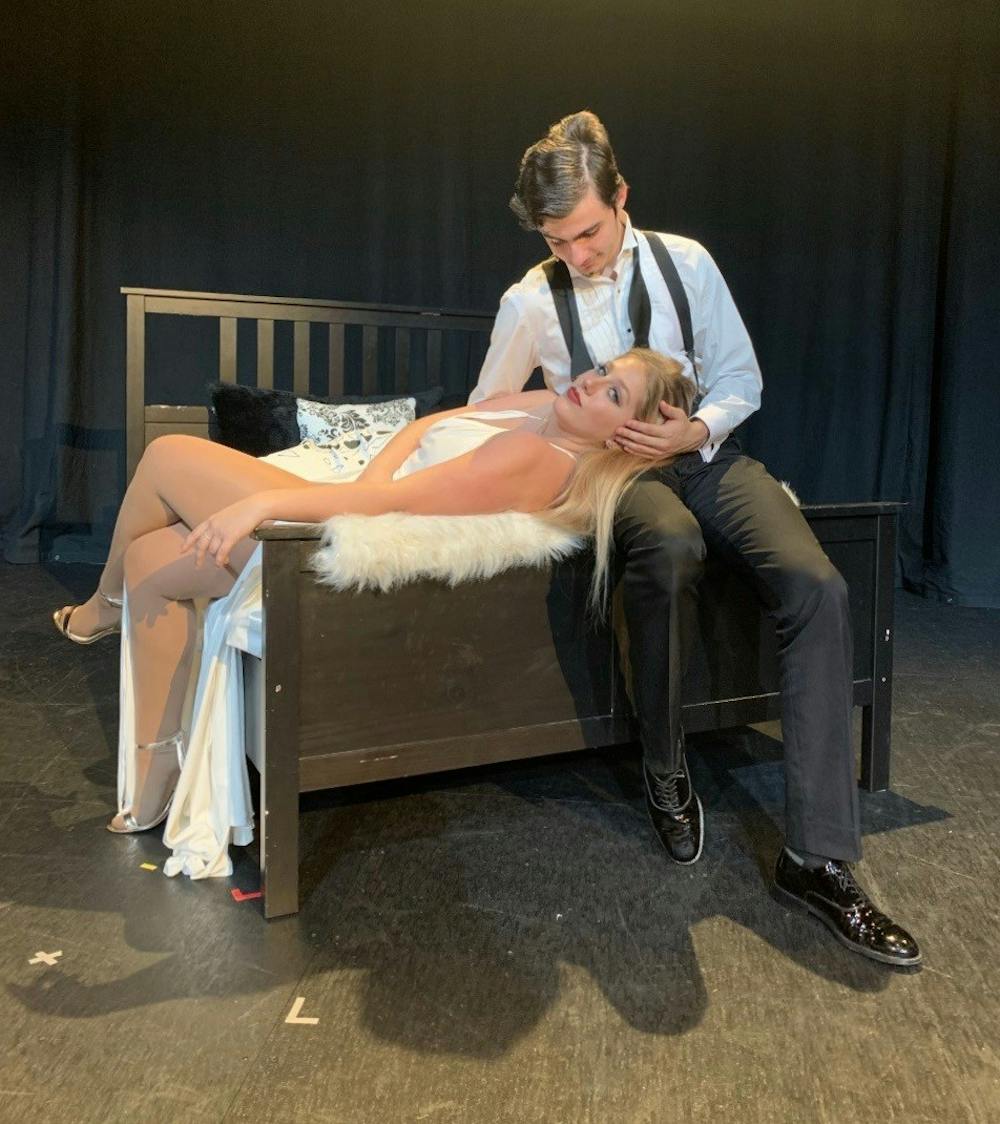A story of womanhood, the struggles of finding love and the importance of a good dance number collide to create Company Carolina’s production of “Sweet Charity.” The show is running from Nov.1-3 at CURRENT ArtSpace in Chapel Hill.
The 1966 musical was originally choreographed and directed by the Broadway legend Bob Fosse and starred his wife Gwen Verdon. The show combines Cy Coleman's music with Dorothy Fields' lyrics and Neil Simon's dialogue to create a comedic, yet challenging, story about a young taxi dance hall performer named Charity Hope Valentine.
Complex dance numbers and witty musical quips aside, the show is principally about a woman and her struggle to find fulfillment in her life, said junior Kayley Carpenter, co-director of the Company Carolina production.
“The very beginning of the show says that it’s the story of a girl who just wanted to be loved, and we took that with a modern understanding of the conventions of womanhood and all types of love,” Carpenter said. “We asked, 'How can we satiate audiences and leave them with a very poignant message right now about womanhood and female empowerment?’”
The show’s title character is played by junior Elizabeth Durham, who said the story’s concentration on sex workers and the empowerment that these characters are able to find in their lives is important for audiences to see.
“The story focuses around Charity trying to find love in every aspect, friendships and romantic love, but it’s not just entirely romantic love, which I think is important,” Durham said. “I hope people take something away from the challenges of women like Charity who have to live the realities of that particular lifestyle.”
The show was exceptional for its time, but includes some themes that have become slightly outdated for a present-day audience, Carpenter said.
“This show is in musical theater canon, it's iconic and everyone knows it, but it’s also from the 1960s and there are a lot of dated themes that are present in the piece,” Carpenter said. ”So although the show originally was kind of liberal for its time, because it put strippers, essentially, in the limelight and told their stories, it also has a lot of misogyny embedded within that.”
Carpenter said that the decision to alter the story for a modern audience made a lot of sense for her and co-director and choreographer Bradley Barefoot. She said the show’s themes of womanhood and female empowerment are relevant, especially for a demographic of college students.




